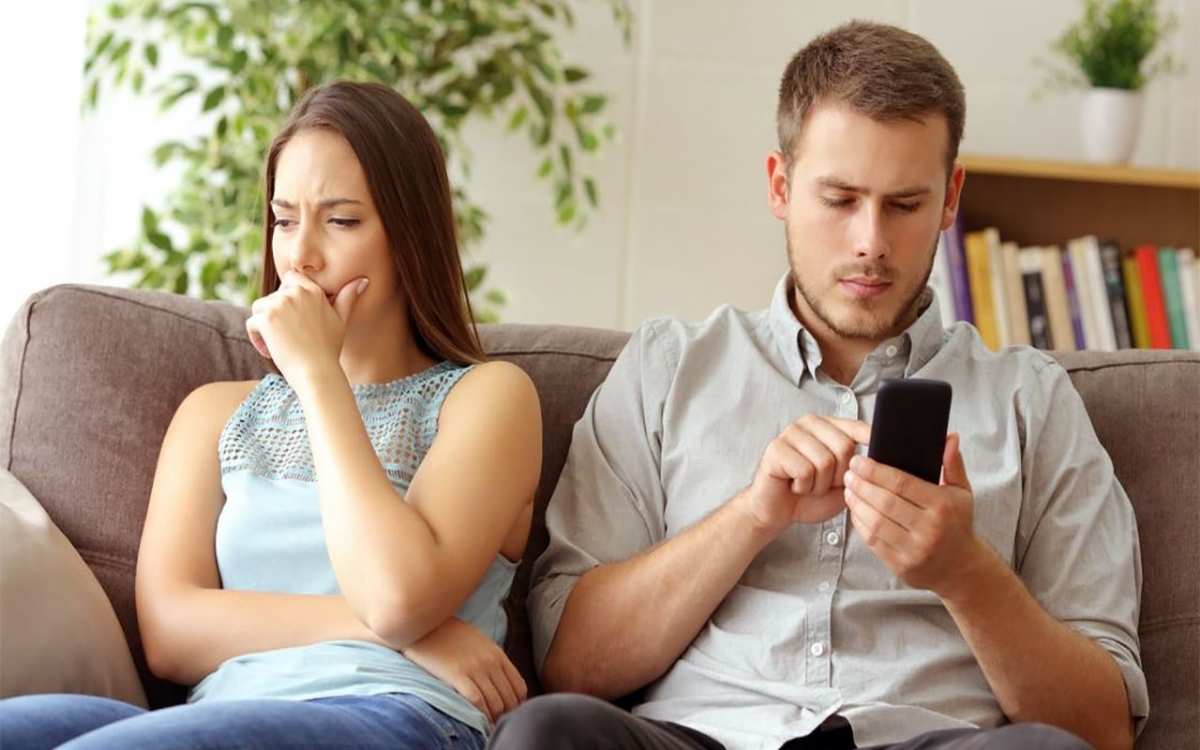What is Phubbing?

A brief explanation: phubbing is a combination of the words "phone" and "snubbing" and is used to describe the act of ignoring other people around you for the sake of browsing on your device.
Phubbing. Depending on who you ask, it's either the scourge of modern society or it's really not that important. It has been associated with all sorts of situations, from loneliness to relationship problems. But a recent study has revealed a surprising result: Contrary to all the depictions of family life you see on 21st century television, married people are less likely to phubbing others compared to singles. Who would have thought? While the word itself was originally imagined as part of a clever marketing campaign, the behavior it describes is so common that it has somehow... stuck. Recent statistics from the GSMA revealed that 4.3 billion people worldwide own smartphones, making up the majority of the global population. Wherever there are smartphones, there are phubbers, and scientists are increasingly interested in the impact of these small devices on our most intimate human relationships.
First author Carla Abi Doumit and colleagues from the Holy Spirit University of Kaslik in Lebanon surveyed 461 young Lebanese adults aged between 18 and 29 to find out their phubbing habits. They hypothesized that those who scored high on the personality trait of extraversion would be less prone to phubbing, while those who experienced boredom and loneliness more easily would be more prone to phubbing. The results were mixed. There was no clear relationship between extraversion and phubbing, but people were less prone to phubbing when they were both extraverted and prone to boredom. "This suggests that they may be able to relieve their boredom by socializing instead of using their phones," the authors write in their paper.
They also found that people who scored high on the trait of openness, which generally implies high levels of curiosity and willingness to try new things, were less likely to be phubbing offenders. But overall, a propensity for boredom was, as expected, a positive predictor of phubbing. We've all been there - sitting through an hours-long meeting when you'd rather be elsewhere and your only chance for a little escape is a quick glance at your phone... what's the harm in that, right? But one thing the authors didn't expect to find was an association with relationship status. Married people in the study sample were less likely to phub compared to singles. The authors attribute this to married people being less lonely and having more responsibilities and worries to fill their time, but there is no definitive literature on this yet.
But given that previous research has shown that calling your spouse on the phone is an indicator of low marital satisfaction, it is probably a good thing that at least this study population seemed happy to keep their phones out of the way of marital happiness. The study had some limitations. The sample was all young, mostly female and highly educated, so the results may not be generalizable to a wider population. Any study based on survey responses is open to the possibility of bias. The authors also emphasize that it is not possible to infer cause and effect from the data: "Furthermore, the cross-sectional study design does not allow conclusions about causality to be drawn."
"For these reasons, our results may not be robust and should be interpreted with caution," they say, but emphasize the need for more research and for professionals working in psychiatric medicine to take a patient's smartphone habits into account when trying to deal with social isolation. Even if you don't think phubbing has had a devastating impact on your marriage, many of us could benefit from reassessing our relationship with our phones. No Phub Fridays?
Thanks for reading.







































